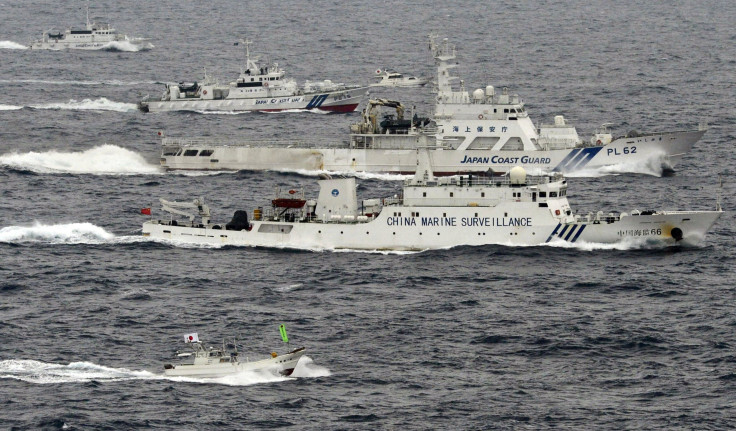East China Sea Dispute: Japan Will Monitor Chinese War Ships With Thousands Of New Troops, Missile Batteries

As China ramps up its military influence in waters off its coast, Japan is preparing to deploy thousands of troops and build missile batteries on islands in the East China Sea. The move aims to limit China's increasingly aggressive tactics toward claiming territory in the South China Sea and East China Sea.
In recent months, the U.S. has pressured Tokyo to counter China's island building and military training in the region. Japan is responding with plans to deploy a line of anti-ship and anti-aircraft missile batteries along 200 islands located roughly 870 miles from the Japanese mainland toward Taiwan. Japan also is taking steps to increase the number of military personnel stationed in the East China Sea by about a fifth to a total of 10,000 by 2020, the Guardian reported.
Under the plan, Chinese ships sailing from their eastern seaboard will have to cross Japanese missile batteries to reach the Western Pacific. The area is crucial to China's growing naval ambitions. “You could say Japan is turning the tables on China,” Toshi Yoshihara, a professor at the U.S. Naval War College told The Guardian.
Chinese coast guard vessels have sailed briefly into Japanese territorial waters around the islands at least 33 times this year. The islands are overseen by Japan but claimed by China. In August, China and Russia conducted the largest naval exercise between the two countries in history off the Sea of Japan.
Analysts have been closely watching tensions between China and Japan.
"The Diaoyu/Senkaku Islands have become the focal point of larger disagreements between China and Japan over the regional order and historical issues, and friction seems inevitable given the depth of these disagreements," researchers at the Stockholm International Peace Research Institute said. "Managing maritime security between China and Japan ultimately requires a resolution of the sovereignty question, either through bilateral negotiations or in a court of international law."
Japan has advised China it does not want war in the region in the past. Japan's Minister of Defense Gen Nakatani said in May that land reclamation projects in the South China Sea could result in chaos. "If we leave any unlawful situation unattended, order will soon turn to disorder, and peace and stability will collapse," Nakatani said during a speech at the Shangri-La Dialogue in Singapore.
© Copyright IBTimes 2024. All rights reserved.












